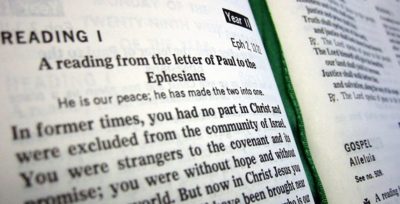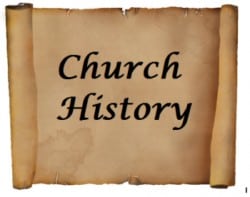Lent 3 Mar 24th 9:15 am – Passion of Christ

Jhn 18:28-40. JESUS BEFORE PILATE
Jhn 18:28 – Then led they Jesus from Caiaphas unto the hall of judgment:
- Then led they Jesus from Caiaphas to the hall of judgment, the palace of the governor of a Roman province – but they themselves went not into the judgment hall lest they should be defiled–by contact with ceremonially unclean Gentiles, so it was not till “in the morning after the chief priests held a consultation with the elders and scribes and the whole council to meet against Him, agreeing to put Him to death, so they bound Him” according to Mat 27:1.
Jhn 18:29 – Pilate then went out unto them, and said, What accusation bring ye against this man? 28 Pilate wants to know for what the charge was against this man that they had brought before him. It is difficult to determine guilt if one knows not what is the charge being investigated…Pilate is asking for what am I to judge?
Jhn 18:30 – They answered and said unto him, If he were not a malefactor, we would not have delivered him up unto thee. They were conscious they had no case of which Pilate could recognize; and therefore, they insinuate that they had already found Him worthy of death by their own law; but not having the power, under the Roman government, to carry their sentence into execution, they had come merely for his sanction. The Jews were basically telling Pilate “trust us we have already convicted him and we just need you to authorize our actions…just tell us OK and we will leave. Pilate sensing the Jews deception says unto them:
Jhn 18:31 – Take ye him, and judge him according to your law. The Jews therefore said unto him, It is not lawful for us to put any man to death:
This whole scene demonstrates the fear they had of Christ, for the one wants the other to do the dirty deed and each seem unsure of the ground upon which they stood – the bearing of false witness filled the room as one tries to nudge the other to take the final step. It is a scene of gang members daring one another.
Jhn 18:32 – That the saying of Jesus might be fulfilled, which he spake, signifying what death he should die- – – that is, by crucifixion – as we see in (Jhn 12:32 – 32 And I, if I be lifted up from the earth, will draw all men unto me., and also in Mat 20:19 And shall deliver him to the Gentiles to mock, and to scourge, and to crucify him: and the third day he shall rise again.); being the Roman mode of execution and could only be carried into effect by order of the governor. (Of note, the Jewish mode in such cases as this was by stoning).
Jhn 18:33 – Then Pilate entered into the judgment hall again, and called Jesus, and said unto him, Art thou the King of the Jews?
- Pilate asks the question the question that many still ask today: Art tho the King of the Jews? But why would Pilate ask such a question? In Luke 23:2 they charge our Lord before Pilate with “perverting the nation, and forbidding to give tribute to Caesar, saying that He Himself is Christ a king.” Perhaps this was what occasioned Pilate’s question; regardless, Jesus probes the question with his answer…
Jhn 18:34 – Jesus answered him, Sayest thou this thing of thyself, or did others tell it thee of me? an important question for our Lord’s case, he wished to bring out whether the word “King” were meant in a political sense, with which Pilate had a right to know and deal with, or whether Pilate were merely put up to it by His accusers, because they had no claims to charge Him but such as were of a purely religious nature, with which Pilate had nothing to do.
Jhn 18:35 – Pilate answered, Am I a Jew? Thine own nation and the chief priests have delivered thee unto me: what hast thou done? What hast thou done? You can almost hear the puzzlement in his words – these are “Jewish questions that I neither understand nor wish to meddle with; but here you stand before me – Thou art here on a charge which, though it seems only Jewish, may yet involve a treasonable matter: As they state it, I cannot decide the point; tell me, then, what has brought Thee into this position in which you find yourself – tell me! But do not feel too bad for Pilate for his purpose for this question was merely to determine the relevancy of the charge on which he must decide.
Jhn 18:36 – Jesus answered, My kingdom is not of this world: if my kingdom were of this world, then would my servants fight, that I should not be delivered to the Jews: but now is my kingdom not from hence.
These words, let us examine down point by point:
Jesus answered, My kingdom is not of this world / notice He does not say “not over,” but “not of this world”–that is, in its origin and nature; therefore “no such kingdom need give thee or thy master the least alarm.”
if my kingdom were of this world, then would my servants fight, that I should not be delivered to the Jews–“A very convincing argument; for if His servants did not fight, except for Paul who had acted out of rage, they did not prevent their King from being delivered to His enemies; much less, if an army, they had used force for the establishment of His kingdom.”
but now–the fact is.
my kingdom not from hence–Our Lord only says whence His kingdom is not–first simply affirming it, next giving proof of it, then reaffirming it. This was all that Pilate had to deal with. The positive nature of His kingdom He would not force upon anyone who was not able to comprehend, as entitled officially to information about it. It is worth noting that the “MY,” which occurs four times in this one verse–thrice of His kingdom, and once of His servants–is put in an form of emphasis.
Jhn 18:37 – Pilate therefore said unto him, Art thou a king then? Jesus answered, Thou sayest that I am a king. To this end was I born, and for this cause came I into the world, that I should bear witness unto the truth. Every one that is of the truth heareth my voice.
Art thou a king then?–There does not seem to be any sarcasm or disdain in this question, else our Lord’s answer would have been different. Putting emphasis upon “thou,” his question betrays a mixture of surprise and uneasiness, partly at the possibility of there being, after all, something dangerous under the claim, and partly from a certain awe which our Lord’s demeanor probably struck into him.
Thou sayest that I am a king–It is even so.
To this end was I–“have I been.”
born and for this cause came I—yes, am I come.
into the world, that I may bear witness to the truth
His birth expresses His manhood; His coming into the world, His existence before assuming humanity: The truth, then, here affirmed, though Pilate would catch little of it, was that His Incarnation was expressly in order to the assumption of Royalty in our nature. Yet, instead of saying, He came to be a King, which is His meaning, He says He came to testify to the truth. Why this?
In such circumstances it required noble courage not to flinch from His royal claims; and our Lord, conscious that He was putting forth that courage, gives a turn to His confession expressive of it. It is to this that Paul alludes, in those remarkable words to Timothy: “I charge thee before God, who quickeneth all things, and before Christ Jesus, who, in the presence of Pontius Pilate, witnessed the good confession” (1Ti 6:13 ).
This one act of our Lord’s life, His courageous witness-bearing before the governor, was selected as an encouraging example of the fidelity which Timothy ought to display. As the Lord revealed Himself the Son of God before a most exalted council, so He confessed His royal and kingly dignity in presence of the representative of the highest political authority on earth.
As Jesus bears witness to the Truth:
Jhn 18:38 – Pilate saith unto him, What is truth? And when he had said this, he went out again unto the Jews, and saith unto them, I find in him no fault at all.
Pilate saith unto him, What is truth?–that is, “Thou stirrest the question of questions, which the thoughtful of every age have asked, but never man yet answered.”
And when he had said this–as if, by putting such a question, he was getting into unreasonable inquiries, so this business demanded rather prompt action.
…he went out again unto the Jews–thus missing a noble opportunity for himself, and giving utterance to that consciousness of all intellectual and moral certainty, which should have been the feeling of every thoughtful mind at that time. How often are we hurried to do something – to make this decision or that – to act is often demanded, but in reality time can give us a better perspective. In these hurried situations “The only certainty,” “is that nothing is ever certain.”
and saith unto them–in the hearing of our Lord, who had been brought forth.
I find in him no fault–no crime. This so exasperated “the chief priests and elders” that, afraid of losing their prey, they poured forth a volley of charges against Him, as appears from Luk 23:4, 5 on affirming His innocence, “they were the more fierce, saying, He stirreth up the people, teaching throughout all Jewry, beginning from Galilee to this place.”
They now see no hope of getting Pilate’s sanction to His death unless they can fasten upon Him a charge of conspiracy against the government; and as Galilee was noted for its turbulence ( Luk 13:1 Act 5:37 ), and our Lord’s ministry lay chiefly there, they artfully introduce it to give color to their charge. “And the chief priests accused Him of many things, but He answered nothing ( Mar 15:3 ).
Then said Pilate unto Him, Hearest Thou not how many things they witness against Thee? And He answered him to never a word, insomuch that the governor marvelled greatly” ( Mat 27:13, 14 ). See on JF & B for Mr 15:3-5. In his perplexity, Pilate, hearing of Galilee, bethinks himself of the expedient of sending Him to Herod, in the hope of thereby further shaking off responsibility in the case.
See Mar 15:6, and see on JF & B for Lu 23:6-12.
The return of the prisoner only deepened the perplexity of Pilate, who, “calling together the chief priests, rulers, and people,” tells them plainly that not one of their charges against “this man” had been made good, while even Herod, to whose jurisdiction he more naturally belonged, had done nothing to Him: He “will therefore chastise and release him” ( Luk 23:13-16 ).
Jhn 18:39 – But ye have a custom, that I should release unto you one at the passover: will ye therefore that I release unto you the King of the Jews?
Once again stirring their emotions by calling Jesus their King (of the Jews)…his taunting of them only seems to strengthen their resolve. As they:
Jhn 18:40 – Then cried they all again, saying, Not this man, but Barabbas. Now Barabbas was a robber.
Give us evil and not God, these are their words demanding of Pilate.
Meditation thoughts and questions:
- Pilate saith unto him, What is truth?–that is, “Thou stirrest the question of questions, which the thoughtful of every age have asked, but never man yet answered.” Truth…think about it, what is it. The Church proclaims the truth as things believed by all, everywhere, and in all times. Is this a good guide? What would you say is “Truth?”
- “And the chief priests accused Him of many things, but He answered nothing (Mar 15:3 ). Jesus remained silent…was this smart? Could he have changed their minds? Could he have advanced the truth? Are there times when being silent is wise? Do you have trouble remaining silent? Is this a talent that could help you in your life? Think of ways of building the courage and character of doing so.
- Give us evil and not God: is what the crowd demanded. How often in our lives do we say or do this? Having the proper priorities leads to proper decisions being made…How are your priorities?





